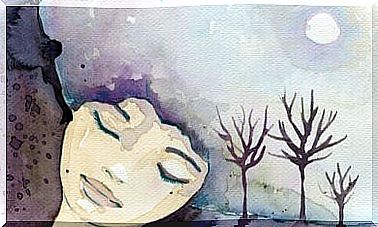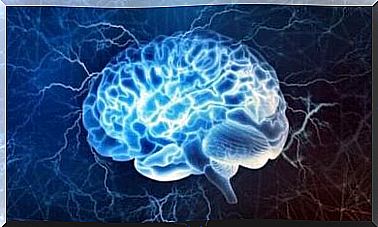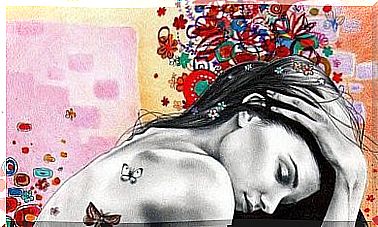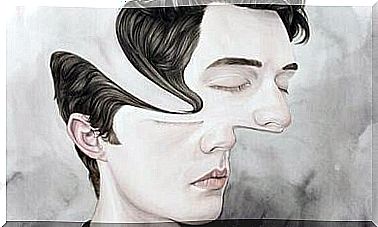Effective Treatments For Depression

Depression is a severe affective disorder characterized by one or more episodes of deep sadness, anxiety, unhappiness and apathy, among other symptoms. Thus, a person receiving this diagnosis must find effective treatments for his depression.
There are various treatments for depression, but only some of them are scientifically proven in controlled research studies and in comparison with other types of therapies. As you will see, the most effective forms of treatment are grouped into pharmacological, cognitive and behavioral therapies.
Effective treatments for depression
To treat depression, it is important to make a good diagnosis and get help from a clinical psychologist. This is the only way to ensure the most appropriate method and thus provide a reliable forecast. In addition, this concerns a serious disorder, so it is necessary that all the patient’s needs are taken care of. Mainly because an ineffective method can aggravate some of the symptoms and thus make recovery more difficult.
As we mentioned above, the most effective treatments are pharmacological and psychological. In turn, the latter can be divided into cognitive and behavioral treatments. However, they are usually only part of a certain procedure.
Each of these groups aims to treat the various causes of depression. On the one hand, the factors of a more biological or endogenous nature. On the other hand, those that are related to depressive thoughts and behaviors.

Pharmacological treatments
This type of treatment is the subject of some controversy regarding its effectiveness. This is due either to its possible addictive nature or to its side effects. However, it is the most systematically studied form of treatment and also the most widely used. For this reason, its role in the treatment of depression is fundamental. In addition, medication is usually supplemented with psychological therapy.
There are several ways to classify pharmacological treatments for depression. Thus, some drugs are more effective than others in treating the different types. Considering that there are different types of depression, that is. One of the most commonly used classifications is classic or first generation antidepressants and new or second generation antidepressants.
Tricyclic (imipramine) and monoamine oxidase inhibitors (MAOIs) (phenelzine, selegiline, tranylcypromine) are the classic antidepressants. Both act indirectly by preventing the elimination of serotonin and norepinephrine. This is done by increasing the supply of these neurotransmitters in the brain.
MAOIs (including venlafaxine or moclobemide) and SSRIs (fluoxetine, paroxetine, sertraline and citalopram) are the new or second generation. In fact, these appear to have a lower incidence of side effects. SSRIs work by preventing the reuptake of serotonin. They are also the most commonly prescribed antidepressants.
Note that data suggest that pharmacological treatments are only effective in 30-50% of patients. In this regard, they work better in combination with psychological cognitive behavioral therapy.
Cognitive behavioral therapies
The most effective psychological treatments for depression are behavioral and cognitive, especially in combination. This type of intervention has a demonstrated palliative ability in depressive symptoms. In addition, these have in some cases been even more effective than pharmacological treatments on an individual basis.
At the same time, cognitive techniques help patients to reorganize their thoughts by identifying irrational ideas and restructuring them. Behavioral methods also focus on the patient’s behavior and aim to check the validity of his thoughts. After refuting them, new reinforcing activities are offered in the patient’s immediate environment through assignments.
Some common treatments for depression
- Cognitive restructuring. There are specific thought patterns within a depression. A negative view of oneself and one’s future is its main characteristic. The goal is to identify and modify these biased ideas until they lead to others producing more beneficial emotions and behaviors through cognitive restructuring.
- Behavioral activation. It is based on the fact that the person has stopped receiving support from his environment. Therefore, this technique consists of motivating and encouraging the types of behaviors that lead to an environment where the person receives support. To recover their adaptable thoughts, get in a better mood and above all to have a better quality of life.
- Self-control therapy by Rehm. This is related to the previous one and strives to improve the person’s self-control skills. Thus, the person gets resources to respond healthily to failures and be able to redirect their thoughts and behaviors towards a positive personal goal.
- Problem solving therapy. This technology aims to change the person’s way of facing problems. It is about instead perceiving them as challenges with the possibility of improvement. In addition, the technology teaches strategies to the patient so that he can better solve the problems and place them in an active position to achieve their goals.

The importance of effective treatments for depression
Optimal treatment is important when you or someone close to you is suffering from depression. To achieve this, you need to figure out which type of therapy has the best evidence of recovery and effectiveness for your situation. In addition to making a good choice, it is also important that you as a patient commit to and follow the treatment. This is because relapse is very common if the treatment is abandoned.
Therefore, always consult a professional in psychiatry or psychology and do not try to self-diagnose via non-technical media. As we have explained, effective treatments for depression can help a lot, but seeking help in the wrong places can hurt you by wasting valuable time on not carrying out a treatment that really helps you.









